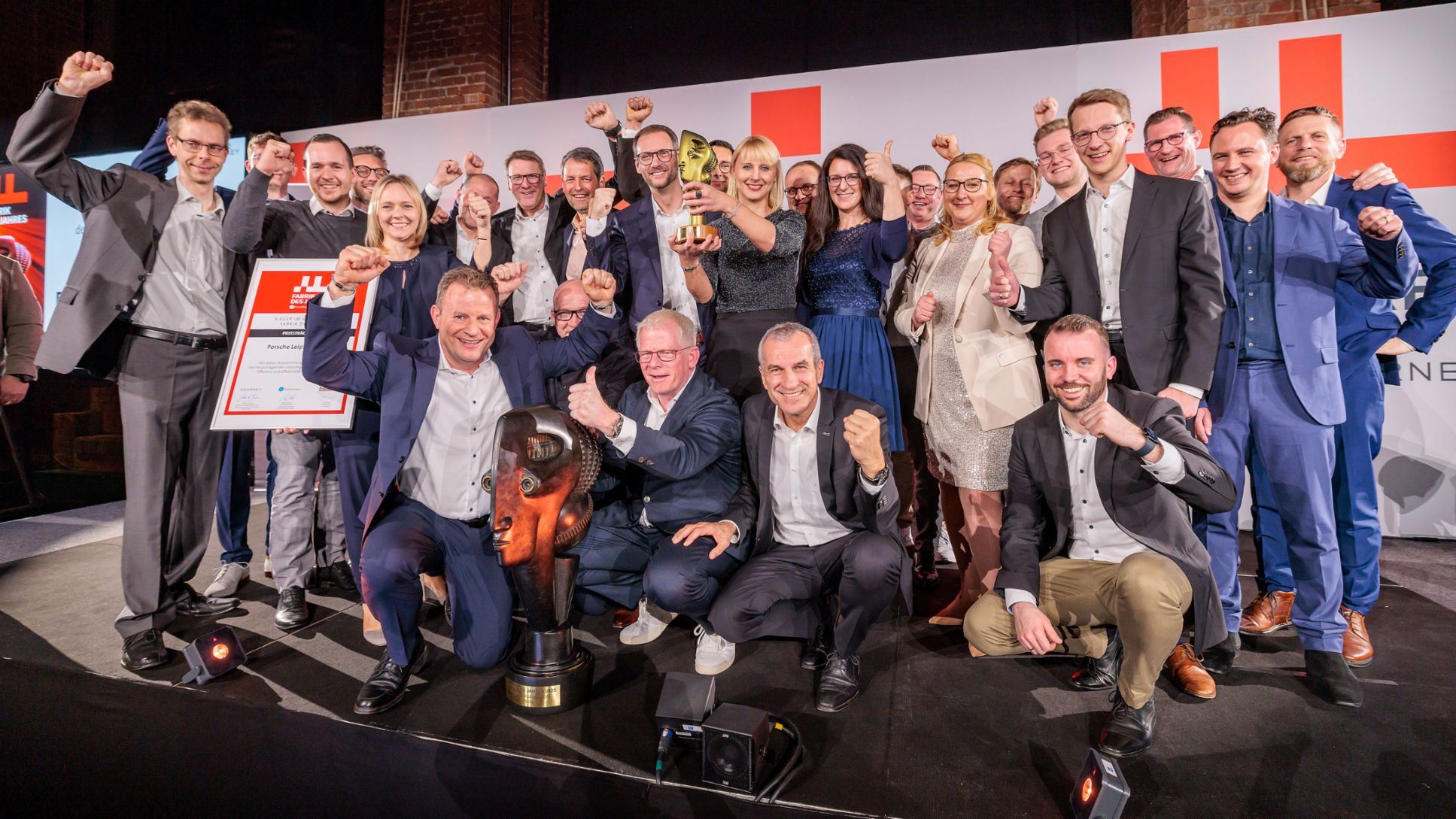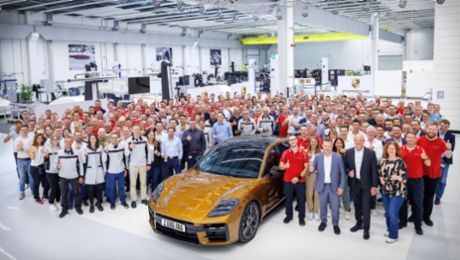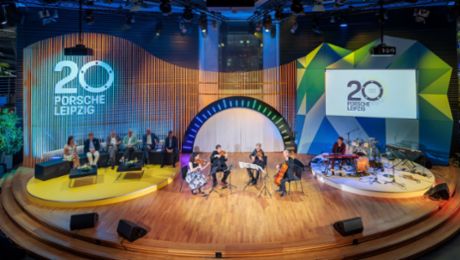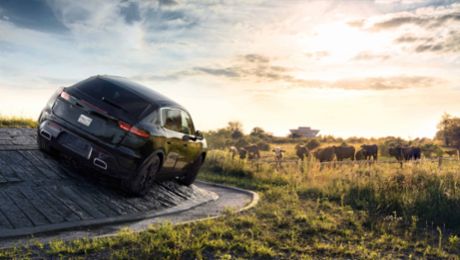The sports car manufacturer’s production site in Saxony came out ahead of competitors to win over the panel of expert judges when they visited last autumn. Almost 100 factories from all over the world submitted bids for the renowned industry award.
The intelligent, connected factory – smart, lean, green
Porsche is implementing its vision of an intelligent, connected facility through its Smart Factory approach. It is based on efficient, resource-sparing processes – smart, lean and green. The new ‘marriage’ process in the assembly plant is an example of lean mixed production with a high degree of complexity. The marriage is the centrepiece of car production, when the chassis and the body are joined together. In Leipzig, the marriage process is designed for maximum flexibility. Here, cars with three different types of drivetrain – combustion, hybrid and electric – are produced on a single assembly line. Camera-based battery monitoring for electric cars has also been integrated, along with an automatic measuring system for inspecting the screw threads.
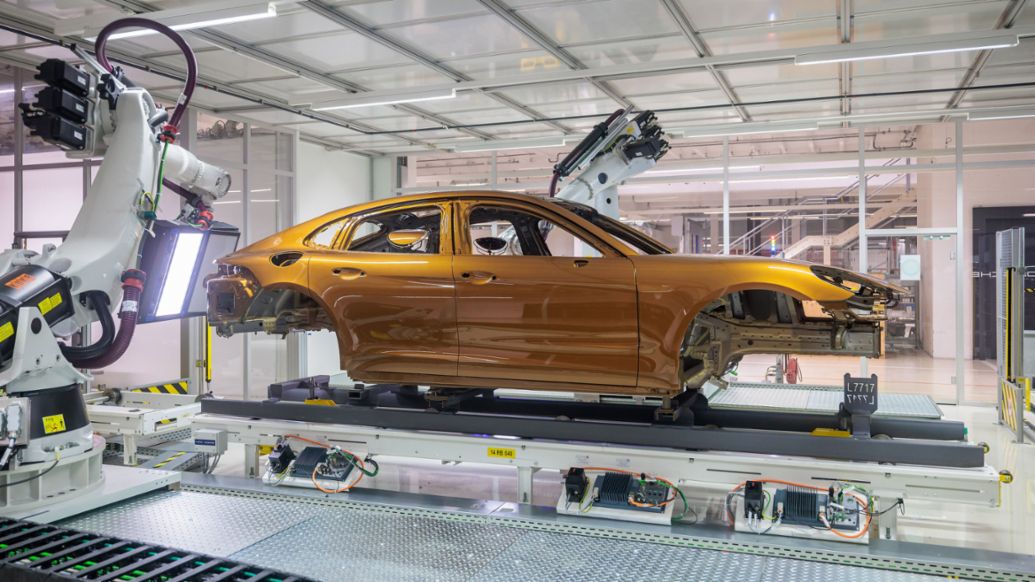
Another example from the paint shop. In the past, coats of paint were inspected by members of the team, but now a smart solution does this with significantly greater efficiency – automatic error detection (AFE) has been in series operation since 2023. In just 70 seconds, two robots scan the entire outer surface of a car’s body with a pattern of light strips. Around 100,000 photos enable them to use reflections to identify even the tiniest irregularities. Based on the results, five image-processing computers generate a 3D visualisation of the body that very rapidly shows the workers the location and type of irregularities detected.
Sustainability and commitment to society as further success factors
Porsche is aiming to reduce its impact on the environment as much as possible. One aspect of its vision of a Zero Impact Factory is to promote a circular economy, biodiversity and air quality. Since 2017, the Leipzig factory has used electricity only from renewable energies. Production at the Leipzig factory has been CO₂-neutral since 2021. A portion of the electricity required is produced by the factory itself, with four photovoltaic systems installed for a total output of around 9.4 MWp (megawatt peak). Porsche is working towards a carbon-neutral status across its value chain for its newly produced cars by 2030.
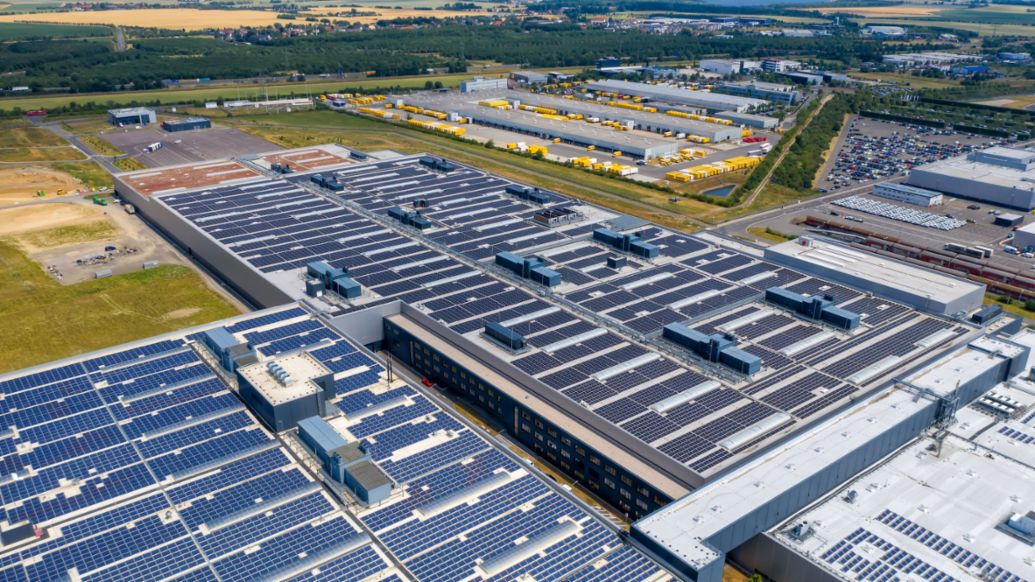
Alongside resource-sparing production, Porsche has also made a wide-ranging social commitment in Leipzig. The sports car manufacturer supports projects in the region relating to education, culture, social issues, sport and the environment. The factory’s strategy has also included projects to conserve the variety of species on the premises for more than 20 years. On the approximately 132-hectare off-road terrain, the factory has implemented a nature-based grazing meadow concept. Along with Heck cattle and Exmoor ponies, Porsche has introduced about three million honeybees to the site, whose natural areas also provide a living space for many wild animals and plants.
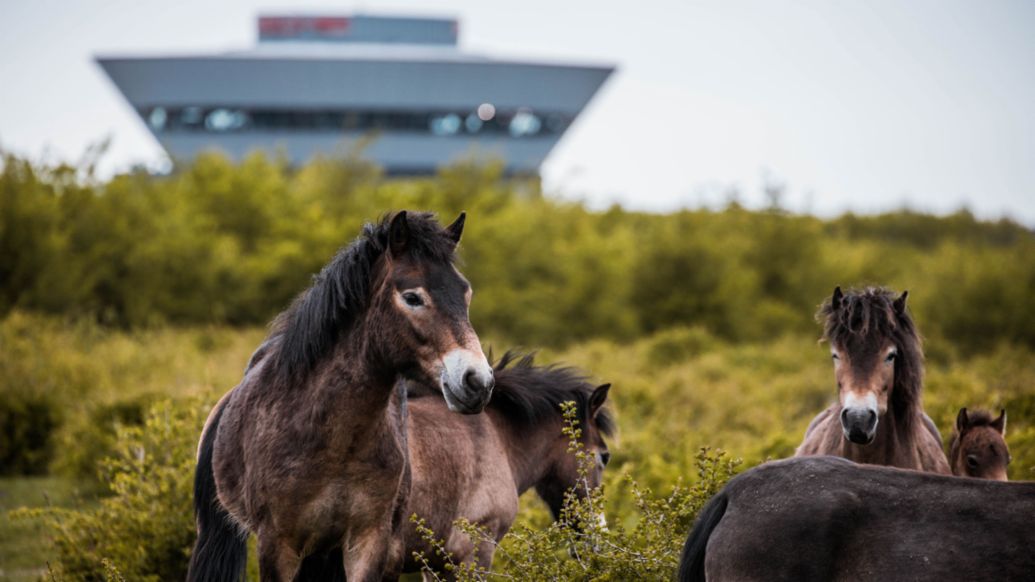
In 2002, the Porsche factory in Leipzig began operations as the second Porsche production site after the company’s headquarters in Stuttgart-Zuffenhausen. Today, the factory is an important economic driver and employer in the central German region. More than 4,600 employees build the Macan and Panamera models here. The factory is also home to a Porsche Experience Center with an FIA-certified track and an off-road course.
Macan 4 (WLTP): Electrical consumption combined: 21.1 – 17.9 kWh/100 km; CO₂ emissions combined: 0 g/km; CO₂ class: A
Macan Turbo (WLTP): Electrical consumption combined: 20.7 – 18.8 kWh/100 km; CO₂ emissions combined: 0 g/km; CO₂ class: A
Panamera (WLTP): Fuel consumption combined: 10.5 – 9.6 l/100 km; CO₂ emissions combined: 239 – 219 g/km; CO₂ class: G
All status 03/2024
